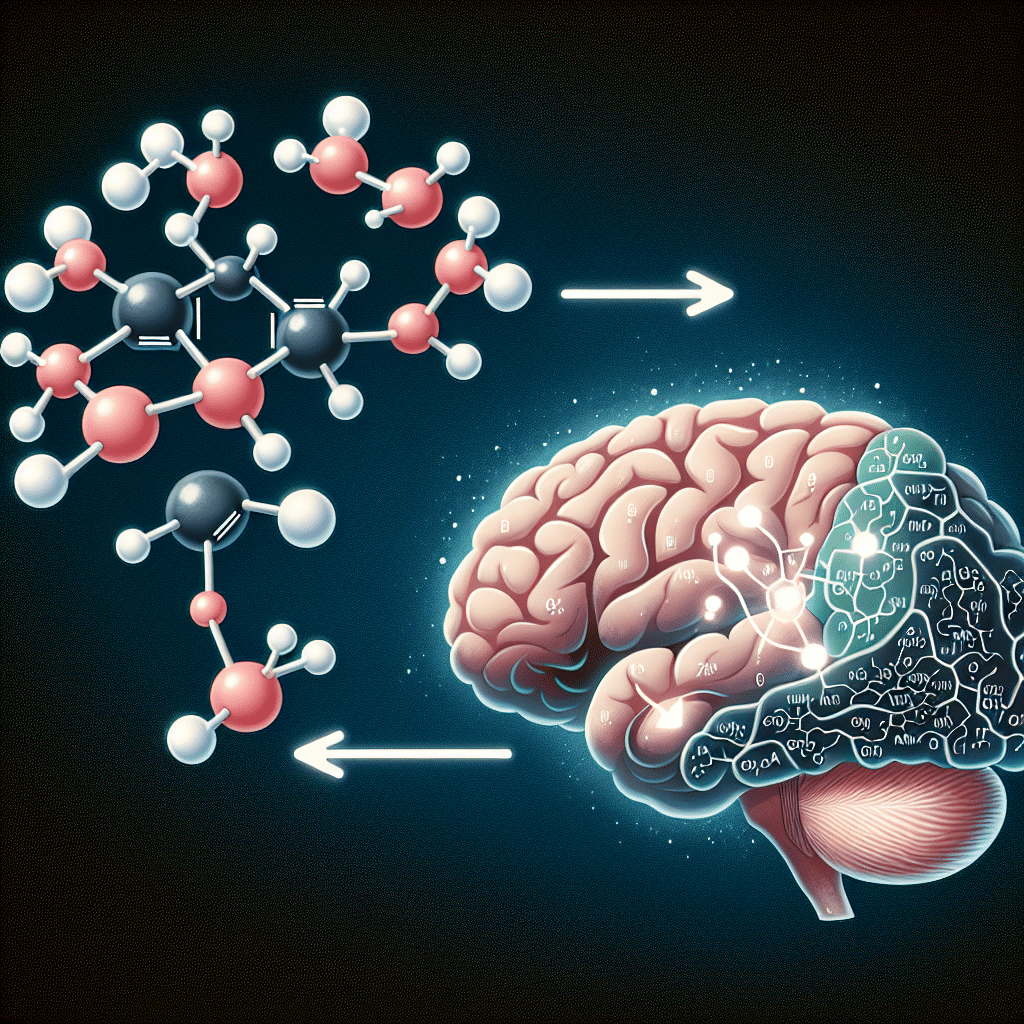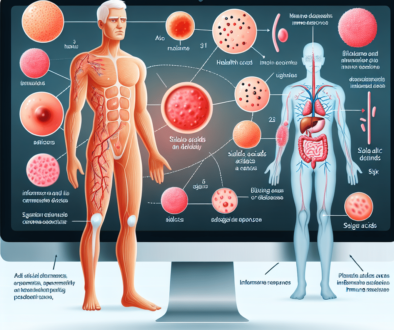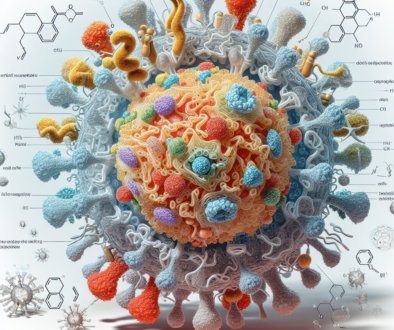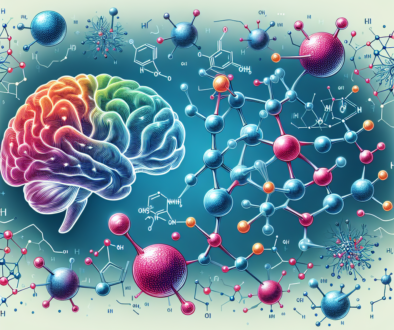Sialic Acid: Combatting Neurodegenerative Diseases
-
Table of Contents
- Sialic Acid: A Potential Ally in Combating Neurodegenerative Diseases
- Understanding Sialic Acid and Its Role in the Brain
- The Link Between Sialic Acid and Neurodegenerative Diseases
- Therapeutic Potential of Sialic Acid in Neurodegenerative Diseases
- Case Studies and Clinical Trials
- Challenges and Future Directions
- Conclusion: Sialic Acid as a Promising Candidate for Neuroprotection
- Discover ETprotein’s High-Quality Protein Products
Sialic Acid: A Potential Ally in Combating Neurodegenerative Diseases

Neurodegenerative diseases represent a group of disorders characterized by the progressive degeneration of the structure and function of the nervous system. They are incurable and debilitating conditions that can lead to severe disabilities or even death. As the global population ages, the prevalence of these diseases is increasing, making the search for effective treatments more urgent than ever. In this context, sialic acid, a unique sugar molecule, has emerged as a potential therapeutic agent in the fight against neurodegenerative diseases.
Understanding Sialic Acid and Its Role in the Brain
Sialic acid is a term that encompasses a family of nine-carbon sugars that are typically found at the outermost end of glycan chains attached to proteins and lipids. In the human brain, sialic acid is a critical component of gangliosides and other glycoconjugates that play a pivotal role in neuronal function, including neural transmission, plasticity, and cell-cell recognition.
- Gangliosides: These sialic acid-containing lipids are abundant in the neuronal membranes and are involved in modulating cell signaling and synaptic transmission.
- Neural Plasticity: Sialic acid is essential for learning and memory as it influences the plasticity of neural connections.
- Cell-Cell Recognition: It facilitates interactions between neurons and other cells, which is crucial for brain development and repair.
The Link Between Sialic Acid and Neurodegenerative Diseases
Research has shown that sialic acid levels and the proper functioning of sialoglycoconjugates are altered in various neurodegenerative diseases, such as Alzheimer’s disease, Parkinson’s disease, and amyotrophic lateral sclerosis (ALS). These alterations can lead to a cascade of events that contribute to the pathogenesis of these disorders.
- Alzheimer’s Disease: Studies have found that sialic acid levels in the cerebral cortex are significantly reduced in Alzheimer’s patients, potentially affecting cognitive functions.
- Parkinson’s Disease: Sialic acid alterations in gangliosides have been observed in the substantia nigra of Parkinson’s patients, which could contribute to dopaminergic neuron degeneration.
- ALS: Changes in sialylation patterns have been detected in ALS, suggesting a disruption in neuronal communication and survival.
Therapeutic Potential of Sialic Acid in Neurodegenerative Diseases
Given the critical role of sialic acid in maintaining neuronal health, researchers are exploring ways to harness its therapeutic potential. Strategies include supplementing sialic acid, enhancing its biosynthesis, and preventing its degradation.
- Supplementation: Dietary supplementation with sialic acid has been shown to improve cognitive functions in animal models of neurodegeneration.
- Biosynthesis Enhancement: Drugs that boost the endogenous production of sialic acid could help restore normal brain function.
- Preventing Degradation: Inhibitors of enzymes that degrade sialic acid-containing compounds could protect against neuronal loss.
Case Studies and Clinical Trials
Several studies have provided insights into the potential benefits of sialic acid in neurodegenerative diseases. For instance, a clinical trial investigating the effects of sialic acid supplementation in patients with mild cognitive impairment reported improvements in memory and cognitive performance. Animal studies have also shown that sialic acid can reduce amyloid plaque formation, a hallmark of Alzheimer’s disease.
Challenges and Future Directions
While the therapeutic potential of sialic acid is promising, there are challenges to overcome. These include ensuring bioavailability, crossing the blood-brain barrier, and determining optimal dosages. Future research should focus on developing targeted delivery systems and conducting large-scale clinical trials to fully understand the benefits and limitations of sialic acid-based therapies.
Conclusion: Sialic Acid as a Promising Candidate for Neuroprotection
In conclusion, sialic acid holds significant promise as a therapeutic agent in the battle against neurodegenerative diseases. Its role in maintaining neuronal health and plasticity makes it a compelling target for drug development. While more research is needed to translate these findings into clinical applications, the potential of sialic acid to improve the lives of those suffering from these devastating diseases is an exciting prospect.
Discover ETprotein’s High-Quality Protein Products
In addition to exploring the therapeutic potential of sialic acid, it’s important to consider the overall health benefits of high-quality protein products. ETprotein offers a range of organic bulk vegan proteins and L-(+)-Ergothioneine (EGT) that can support various aspects of health, including brain health. Their products are characterized by a neutral taste, non-GMO, allergen-free attributes, and high purity levels, making them suitable for a wide range of industries.
Whether you’re a distributor, trader, or manufacturer in the nutraceutical, pharmaceutical, or food and beverage sectors, ETprotein can provide comprehensive solutions to meet your protein needs. Their commitment to quality and customer satisfaction makes them a trusted partner in the global market.
About ETprotein:
ETprotein, a reputable protein and L-(+)-Ergothioneine (EGT) Chinese factory manufacturer and supplier, is renowned for producing, stocking, exporting, and delivering the highest quality organic bulk vegan proteins and L-(+)-Ergothioneine. They include Organic rice protein, clear rice protein, pea protein, clear pea protein, watermelon seed protein, pumpkin seed protein, sunflower seed protein, mung bean protein, peanut protein, and L-(+)-Ergothioneine EGT Pharmaceutical grade, L-(+)-Ergothioneine EGT food grade, L-(+)-Ergothioneine EGT cosmetic grade, L-(+)-Ergothioneine EGT reference grade and L-(+)-Ergothioneine EGT standard. Their offerings, characterized by a neutral taste, non-GMO, allergen-free attributes, with L-(+)-Ergothioneine purity over 98%, 99%, cater to a diverse range of industries. They serve nutraceutical, pharmaceutical, cosmeceutical, veterinary, as well as food and beverage finished product distributors, traders, and manufacturers across Europe, USA, Canada, Australia, Thailand, Japan, Korea, Brazil, and Chile, among others.
ETprotein specialization includes exporting and delivering tailor-made protein powder and finished nutritional supplements. Their extensive product range covers sectors like Food and Beverage, Sports Nutrition, Weight Management, Dietary Supplements, Health and Wellness Products, and Infant Formula, ensuring comprehensive solutions to meet all your protein needs.
As a trusted company by leading global food and beverage brands and Fortune 500 companies, ETprotein reinforces China’s reputation in the global arena. For more information or to sample their products, please contact them and email sales(at)ETprotein.com today.












